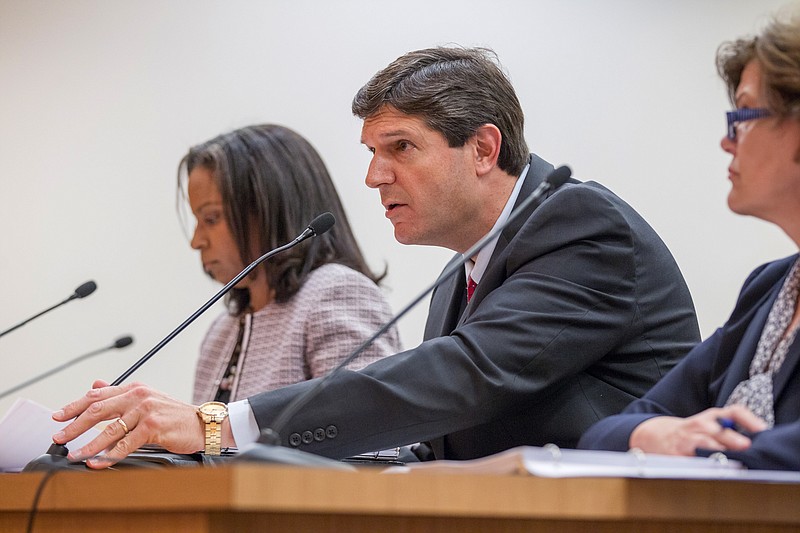NASHVILLE -- State legislators said Wednesday they want to give the Health Department more authority to track how fetal tissue is disposed of after abortions.
Sen. Mike Bell, R-Riceville, who presided over a joint hearing of the Government Operations Committee, said the Health Department is making required inspections of abortion clinics but there could still be illegal tissue sales going on without the inspectors' knowledge.
Bell said lawmakers want to know more about how Tennessee regulates abortion after seeing hidden-camera videos that raised the question of whether Planned Parenthood officials in other states were profiting from the sale of fetal tissue. Planned Parenthood has said it charges fees solely to cover its costs.
Health Commissioner John Dreyzehner told the committee state health officials make unannounced inspections of abortion clinics each year, but inspectors don't enforce the criminal law that makes it illegal to buy or sell fetal tissue in Tennessee. If inspectors suspected a clinic were breaking the law, they would inform the appropriate authorities, he said.
Dreyzehner and two of his staff testified the Health Department's Office of Vital Records keeps records of every abortion performed in Tennessee, but those records don't include how the fetus was disposed of. They also said there are regulations governing how hospitals and ambulatory surgical treatment centers must dispose of human tissue and fluids, but those don't apply to doctors' offices.
Currently two doctors' offices that perform abortions in Tennessee are not licensed as ambulatory surgical treatment centers, but they are working to upgrade their facilities and obtain those licenses after the General Assembly passed a law earlier this year requiring it.
"I believe there is a hole in reporting," Bell said. Referring to the undercover videos, he added, "We need to develop laws and rules to ensure these horrible practices are not happening in our state."
Rep. John Ray Clemmons, D-Nashville, a committee member, complained after the hearing that it was one-sided and not a real discussion.
"We heard the health commissioner testify this is not a problem in the state of Tennessee," he said. "New regulations are completely unnecessary."
